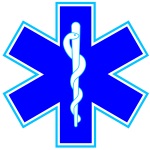Controlled Substance Disposal Procedures
From Protocopedia
Procedure Guidelines
9.41 Controlled substances disposal procedure
- This procedure applies to DEA controlled substances that have expired, have a broken seal, or otherwise need to be disposed of. It does not apply to the wasting of remaining medications after partial administration to a patient.
- Each agency will designate who in their agency will be responsible for disposal of controlled substances, this should not be a street paramedic responsibility.
- The DEA has implemented a standard of destruction—non-retrievable—for registrants that destroy controlled substances, and procedures for the destruction of controlled substances. 21 CFR 1300.05 (“non-retrievable”), 1317.90, and 1317.95. The DEA is not requiring a particular method of destruction, so long as the desired result is achieved. This standard is intended to allow public and private entities to develop a variety of destruction methods that are secure, convenient, and responsible, consistent with preventing the diversion of such substances. Destruction of controlled substances must also meet all other applicable Federal, State, tribal, and local laws and regulations. Once a controlled substance is rendered “non-retrievable,” it is no longer subject to the requirements of the DEA regulations.
- Agencies can use a charcoal based solution such as RxDestroyer or Deterra to dispose of controlled substances. The medications shall be added to the container as per their directions. Controlled substances should be mixed with non-controlled substances in the same container to ensure that the substance is non-retrievable. For example, mixing Morphine in the same container as Epinephrine and Dopamine makes it almost impossible to retrieve just the Morphine out of the container.
- DEA Form 41 (https://www.deadiversion.usdoj.gov/21cfr_reports/surrend/41_form.pdf) shall be filled out each time controlled substances are disposed of. 2 people shall witness the disposal and each shall sign the form. The form is to be kept on file for at least 2 years and a completed copy shall also be sent to the Medical Director’s office. It is not necessary to send a copy of the completed form to the DEA.
- This procedure should be completed soon after medications expire, they should not be allowed to stockpile. They will be stored in a double locked area and shall be stored separately from non-expired medications.
